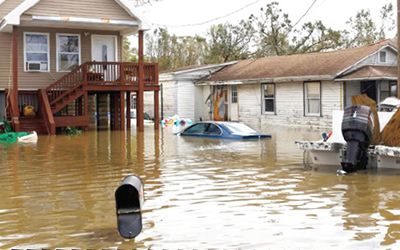
According to the National Emergency Management Agency, floods have affected 27 states, resulting in the displacement of 227,494 individuals and the destruction of 32,837 houses. Additionally, 16,488 hectares of farmland and crops have been damaged.
During a recent statement issued in Abuja by NEMA’s spokesperson, Ezekiel Manzo, the agency’s Director-General, Zubaida Umar, emphasized the importance of public awareness and grassroots initiatives to address flood-related issues, including solid waste management and the clearance of blocked drainages and waterways.
Umar mentioned that efforts are underway to sensitize communities at risk and urged proactive measures, such as relocating to safer areas before the peak rainy season. She also advised farmers not to be alarmed by temporary dry spells, assuring them of favorable weather conditions predicted by NiMet.
With an increasing number of flood incidents in various parts of the country, Umar called on State Emergency Management Agencies and community leaders to enhance their flood response preparedness.
NEMA is actively involved in coordinating disaster management and relief operations in collaboration with SEMAs, demonstrating their commitment to addressing the ongoing crisis efficiently.
In light of the recurrent flooding in Nigeria, worsened by factors like seasonal rains, inadequate drainage, and deforestation, the government continues to face significant challenges during the rainy season, particularly in vulnerable regions near rivers and coastal areas.
Urbanization and poor waste management practices exacerbate the situation by clogging drainages, amplifying the impact of floods. Climate change further complicates these issues, leading to more frequent and severe flooding events with widespread consequences for the population, infrastructure, and agriculture.
Efforts to combat and alleviate flooding include investing in better infrastructure, implementing early warning systems, and promoting public awareness campaigns to minimize the impact on communities.
